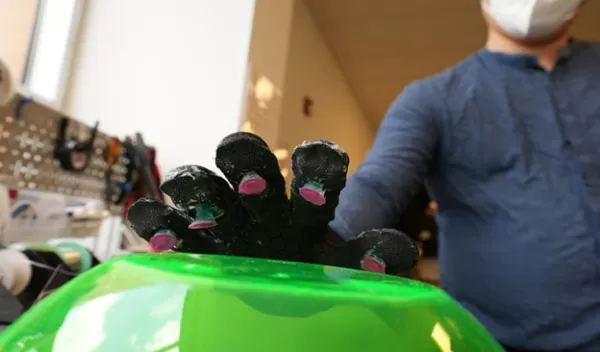
Researchers create an immersible glove with a secure grip
Researchers at Virginia Tech, working on a project made possible by a grant from the U.S. National Science Foundation, have developed a glove they designed based on the adhesive abilities of the octopus. The result is a glove that can be used underwater to grip delicate objects gently but securely. The breakthrough could result in improved equipment and technologies for water rescue teams, bridge engineers and other marine professions.
"Nature already has some great solutions, so our team looked to the natural world for ideas; the octopus became an obvious choice for inspiration," said Michael Bartlett, one of the authors of the study.
The scientists modeled the glove after a sucker-covered octopus arm and mimicked the adhesive bond the suckers form as the muscles of the octopus contract. The minimal amount of pressure required means that these gloves are equally effective in adhering to curved and flat surfaces. The researchers triggered adhesion using sensors and a microcontroller.
"When we look at the octopus, the adhesive certainly stands out, quickly activating and releasing adhesion on demand," said Bartlett. "What is just as interesting, though, is that the octopus controls more than 2,000 suckers across eight arms by processing information from diverse chemical and mechanical sensors. The octopus is bringing together adhesion tunability, sensing and control to manipulate underwater objects."
The research team plans to adapt the glove for use in soft robotics, manufacturing and health care.
